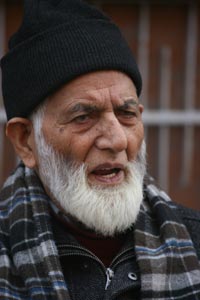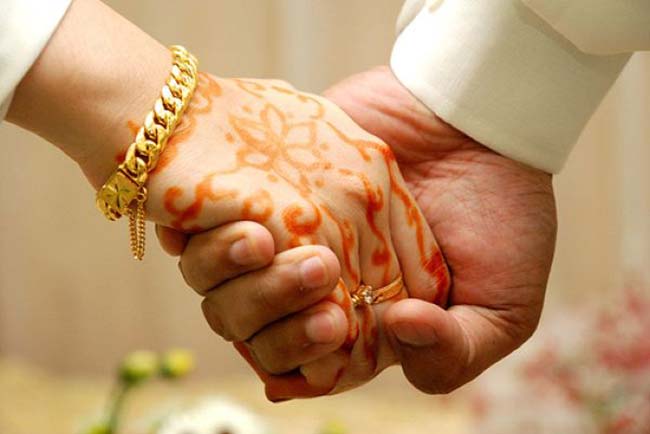According to the above sections of Cr.C.P, the court observed about the maximum term of punishment in two clauses.
1) In no case shall such a person be sentenced to imprisonment for a longer period than 14 years.
2) If the case is tried by a magistrate (other than a magistrate acting under Section 34), the aggregate punishment shall not exceed twice the amount of punishment which he is, in the exercise of his ordinary jurisdiction, competent to conflict.
 In the light of Section 401 of Cr.C.P, the court talks about the power to suspend or remit sentence. The courts observes: “When any person has been sentenced to punishment for an offence,(the governor) may at any time without conditions or upon any conditions which the person sentenced accepts, suspend the execution of his sentence or remit the whole or any part of the punishment to which he has been sentenced.” Adding about the power to commute the punishment, it reads, “(1) The governor, may, without the consent of the person sentenced, commute any one of the following sentences for any other mentioned after it: death, life imprisonment, rigorous imprisonment for a term not exceeding that to which he might have been sentenced, life imprisonment for a like term, fine. (2) Nothing in this section shall affect the provisions of section 54 or section 55 of Ranbir Penal Code.”
In the light of Section 401 of Cr.C.P, the court talks about the power to suspend or remit sentence. The courts observes: “When any person has been sentenced to punishment for an offence,(the governor) may at any time without conditions or upon any conditions which the person sentenced accepts, suspend the execution of his sentence or remit the whole or any part of the punishment to which he has been sentenced.” Adding about the power to commute the punishment, it reads, “(1) The governor, may, without the consent of the person sentenced, commute any one of the following sentences for any other mentioned after it: death, life imprisonment, rigorous imprisonment for a term not exceeding that to which he might have been sentenced, life imprisonment for a like term, fine. (2) Nothing in this section shall affect the provisions of section 54 or section 55 of Ranbir Penal Code.”
Referring to relevant provisions of Chapter 2, 21 and 51 of Jail Manual, the court held that ‘life’ means the life of a human being, unless the contrary appears from the context.
Chapter 21.2 of the Jail Manual says that for the purpose of execution, a sentence of ‘imprisonment for life’ shall mean a sentence for 20 years. According to Chapter No 21.27 of the same jail manual, the court says that irrespective of the remissions granted to a life convict, he shall be replaced only after the state government has issued specific orders about his release.
Talking about the remissions, the court refers to Chapter No 51.1 of Jail Manual, saying that it was a concession granted to prisoners by the state government/Inspector General/ Superintendent. “This concession is subject to withdrawal/forfeiture/revocation. It is not a right. The state government reserves the right to debar/withdraw any prisoner or category of prisoners from the concession of remission.”
The court adds that the remission will be of ordinary, special and state government types. The court says referring to Chapter 51.5, “The superintendent or an officer nominated by him on his behalf is authorized to grant ordinary remission”.
The court further states: “According to the Chapter 51.20 of Jail Manual, life sentence shall be reckoned as twenty years for purpose of calculation of remission. In the case of a prisoner having more than one life sentence, 20 year shall be treated as the total of his sentences for the purpose of calculating remission. Grant of remission to a life convict shall not mean actual remission in this sentence. When the case will be examined by the review board, the remission to his credit will be one of the factors on the basis of which the review of this sentence will be done.”
WHO IS FAKTOO?
Faktoo has the distinction of being J&K’s first prisoner who has completed his Ph D during the course of his detention. University of Kashmir awarded him degree of Doctor of Philosophy in Islamic Studies.
After his Bachelor’s in Commerce in 1987, Faktoo joined militancy. In 1990, he was appointed Hizbul Mujahideen’s spokesman. This didn’t last long. A few months later, he, along with two others, broke away to launch the Jamiat-ul-Mujahideen and Faktoo was made its first spokesman. He operated with pseudonym Qasim.
In October 1990, Faktoo married Syeda Aasiya Andrabi, the chairperson of women’s pro-freedom organization, Dukhatran-e-Millat. In February 1993, he was arrested along with his wife and their child, Mohammad Bin Qasim, on arrival from Maharashtra at Srinagar airport. While Aasiya Andrabi and their child, Mohammad were released after 13 months, Faktoo was booked under PSA and later prosecuted for the killing of human rights activist, H N Wanchoo. In March 1999, he was released on bail and he became the first militant leader to float the idea of an indigenous separatist movement independent of Pakistan. He visited his relatives in London but was arrested on his return at Indira Gandhi International Airport in New Delhi.
Qasim faced trial before the Designated TADA Court, Jammu, and after completion of the trial, he, along with his two associate accused, was acquitted in the murder case of Wancho vide judgment order dated July 14, 2001. But the state appealed against the said judgment before the Apex Court and the acquittal order of TADA court was set aside by the Apex Court and Qasim, along with his two case associates, Ghulam Qadir Bhat of Kupwara and Dr Mohammad Shafi Khan alias Dr Shafi Sharyati of Budgam were sentenced to life imprisonment vide judgment order dated January 30, 2003.
After undergoing 14 years and 23 days of sentence, Dr Qasim made an appeal to consider his case for premature release in accordance with the provisions of J&K Jail Manual. The authorities, however, rejected his claim in 2009 on the ground of being premature.
Aggrieved by the same, Qasim challenged the said order by a writ petition OWP No.997/2009. The order of the authorities was set aside vide order dated June 5, 2010 with a direction to the government to consider the case of Dr.Qasim for his premature release in accordance with the recommendations of the Review Board.
Again the State came with an appeal against the court order. The appeal LPA No 120/2010 was allowed vide order Dated October 5, 2010 and it set aside the order of the writ court with the observation that rejection of the claim of petitioner for premature release would not deprive him from working out other remedies as might be available to him. It was after hearing arguments and counter arguments of advocate Mian Abdul Qayoom and A M Magray, senior Additional Advocate General that Justice Mansoor Ahmad Mir of J&K High Court came out with a verdict which was announced after being kept reserved for around a month.
Dr Qasim Faktoo was reportedly to be released on the eve of last Eid-ul-Fitr in the month of August this year. “The state home department was asking different wings of J&K Police to set Faktoo free before the festival of Eid-ul-Fitr on August 19, 2012.Unlike in 2010 and 2011, the government was actively considering release of over a dozen separatist political detainees and Faktoo was one among them,” a report which appeared in a English daily before Eid, said.
Since last Eid-ul-Fitr, Qasim’s, two young sons, Ahmad Qasim and Mohammad Qasim would have carved a colorful world to see their father at home. But 90 days are enough to change the fate of anybody like Qasim’s two sons and his wife, Aasiya Andrabi, a well known political and religious figure.
Omar Abdullah after taking reigns of the government in 2009 had said, “I will look into the case of Dr Qasim and do justice accordingly.” Contrary to his son, then chief minister Dr Farooq Abdullah fought a sustained legal battle from J&K High Court to Supreme Court of India to ensure that Faktoo and his associates were punished after they were acquitted by the TADA court of Jammu in July 2001. —















